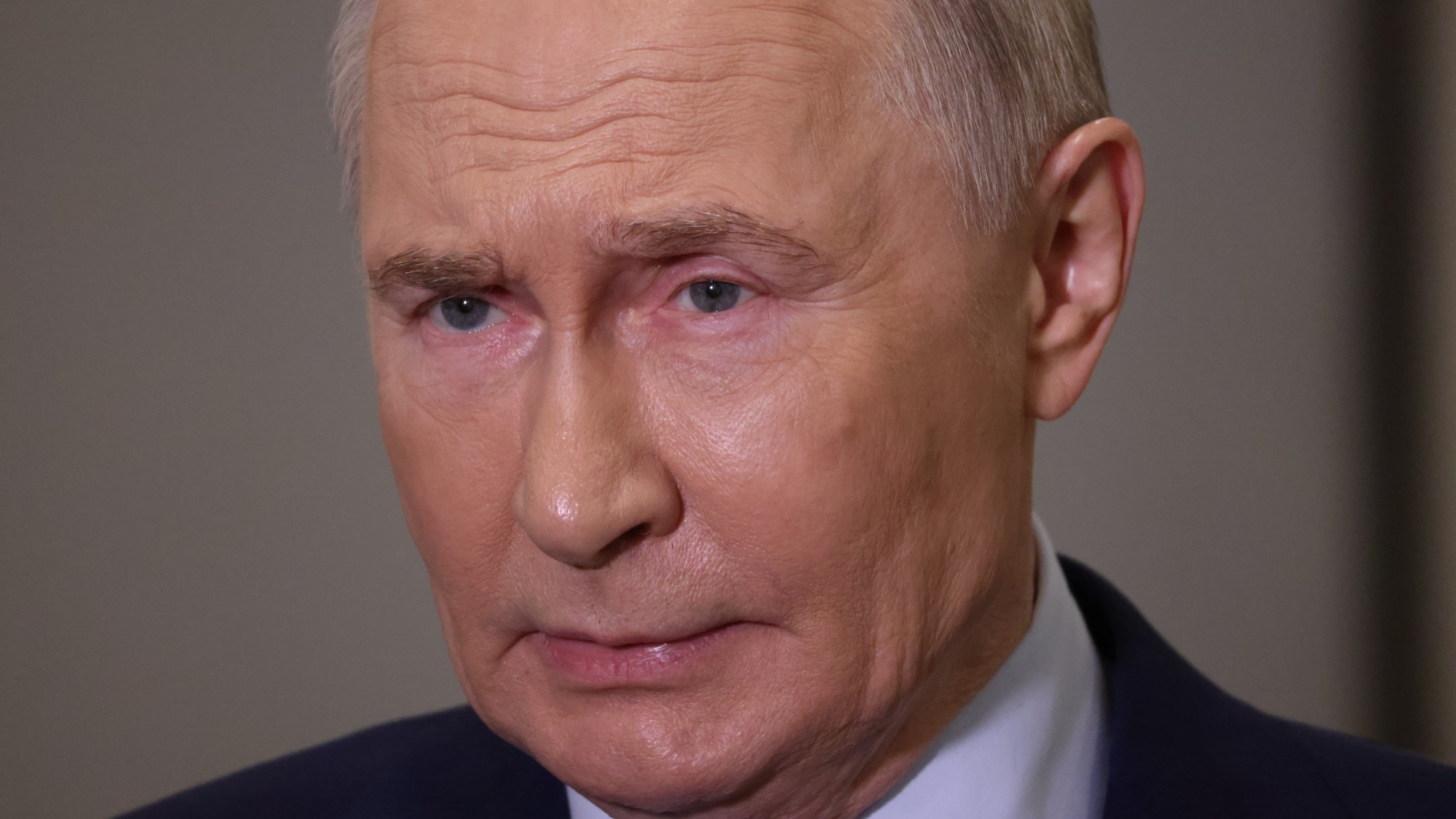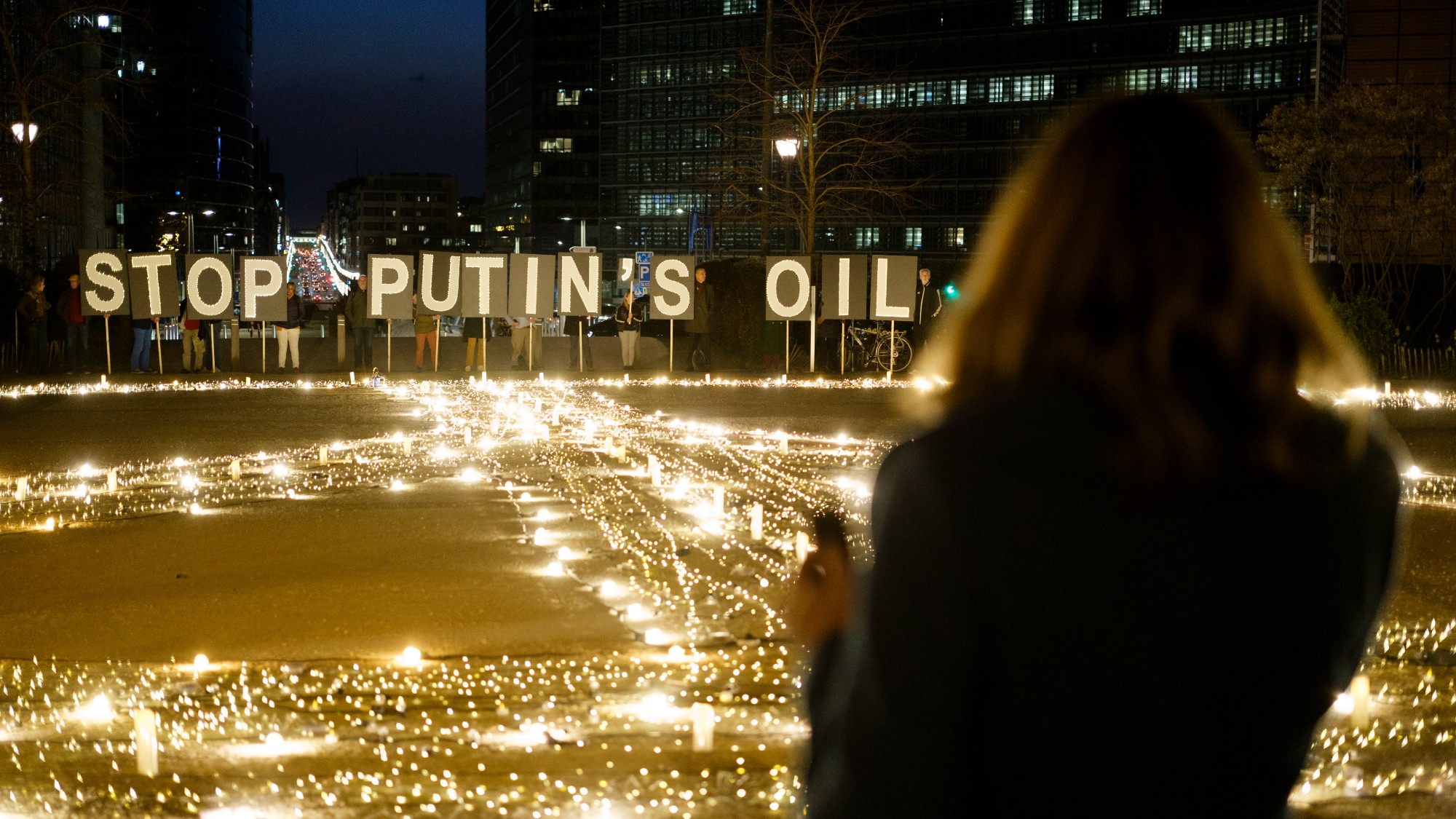The Saudi-Russian oil price war explained
It is wreaking havoc on world markets

A free daily email with the biggest news stories of the day – and the best features from TheWeek.com
You are now subscribed
Your newsletter sign-up was successful
The smartest insight and analysis, from all perspectives, rounded up from around the web:
An oil-price war between Russia and Saudi Arabia sent more shock waves through "a world economy already reeling from the coronavirus," said Verity Ratcliffe at Bloomberg. Oil prices plunged by almost a third, the biggest drop since 1991, after Russia "refused to yield to a Saudi-led gambit to force Moscow to join OPEC in production cuts" last week. The Russian rebuff led Saudi Arabia to respond with fury, "slashing pricing for its crude by the most in more than 30 years" to roughly $31 a barrel. The gush of Saudi oil "if sustained, would savage national budgets from Venezuela to Iran, threaten the heartland of America's shale revolution, and upend politics around the world." The turmoil, on top of the coronavirus crisis, shook financial markets, with U.S. stocks plunging by 7 percent early in the week. The Saudis knew there'd be serious economic consequences, but they were not going to let Vladimir Putin bully them, said Anjli Raval and David Sheppard at the Financial Times. It's a gamble, but the kingdom had "to punish Russia for abandoning" the allegiance it had forged to "prop up the oil market since 2016."
The U.S. economy could be a big loser in this, said David Fickling at Bloomberg. American shale producers, which have helped the U.S. become a net energy exporter, still need roughly $44 per barrel to break even. American investors "have been falling out of love with crude production for a while," and they'll be reluctant to put in the capital necessary to withstand "trench warfare with Russia and Saudi Arabia." Expect shrinking and consolidation of the U.S. shale industry. Our Middle Eastern "ally" has decided to "undermine an important part of the U.S. economy at a critical time," said Daniel Larison at The American Conservative. Maybe now the U.S. will realize it "owes Saudi Arabia nothing and should stop supporting it."
The Week
Escape your echo chamber. Get the facts behind the news, plus analysis from multiple perspectives.

Sign up for The Week's Free Newsletters
From our morning news briefing to a weekly Good News Newsletter, get the best of The Week delivered directly to your inbox.
From our morning news briefing to a weekly Good News Newsletter, get the best of The Week delivered directly to your inbox.
No, said Bill Farren-Price at the Financial Times, this is not the Saudis' fault. Moscow started this — and "has effectively sent its tanks on to the White House lawn." Putin finally grasped what's "been haunting oil officials in Saudi Arabia" for years: That OPEC's production cuts have benefited the U.S. shale explosion, threatening Russian exports to Europe and Asia. "Moscow has taken aim at President Trump's much-vaunted U.S. energy independence" with what amounts to an "economic smash-and-grab."
"There are rare moments when the world economy seems to be reconfiguring itself beneath our feet," said Neil Irwin at The New York Times. "March 2020 is one of those moments." As major industries grapple with the spread of COVID-19, an oil-price war "could cause widespread bankruptcies in the American energy industry" and crush capital investment, since "spending on energy is a major driver of demand for heavy industrial equipment." American businesses have borrowed heavily at low rates. Their debt gives them little room to "withstand the occasional hiccup in demand or a problem with supplies." That in turn makes lenders vulnerable and raises the chance they will pull back just as businesses need money. Combined with coronavirus' decimation of consumer-driven demand, this puts "numerous industries under pressure in ways that could bounce off one another — through financial markets, to the economy, and back again."
This article was first published in the latest issue of The Week magazine. If you want to read more like it, try the magazine for a month here.
A free daily email with the biggest news stories of the day – and the best features from TheWeek.com
-
 How to Get to Heaven from Belfast: a ‘highly entertaining ride’
How to Get to Heaven from Belfast: a ‘highly entertaining ride’The Week Recommends Mystery-comedy from the creator of Derry Girls should be ‘your new binge-watch’
-
 The 8 best TV shows of the 1960s
The 8 best TV shows of the 1960sThe standout shows of this decade take viewers from outer space to the Wild West
-
 Microdramas are booming
Microdramas are boomingUnder the radar Scroll to watch a whole movie
-
 Will latest Russian sanctions finally break Putin’s resolve?
Will latest Russian sanctions finally break Putin’s resolve?Today's Big Question New restrictions have been described as a ‘punch to the gut of Moscow’s war economy’
-
 Why has the Russian ruble performed so well this year?
Why has the Russian ruble performed so well this year?Today's Big Question Despite economic malaise, Russia's currency is up 45% on the year
-
 How potatoes became an 'unusual bellwether' in Russia's economy
How potatoes became an 'unusual bellwether' in Russia's economyUnder The Radar Spud shortages are pointing to a wider crisis in the nation's finances
-
 Why the world's busiest shipping routes are under threat
Why the world's busiest shipping routes are under threatThe Explainer Political tensions, mega ships and global warming offer new challenges – and opportunities
-
 Is the EU funding Russia more than Ukraine?
Is the EU funding Russia more than Ukraine?The Explainer EU remains largest importer of Russian fossil fuels despite sanctions aimed at crippling Kremlin's war effort
-
 Russia's currency crisis as sanctions bite
Russia's currency crisis as sanctions biteThe Explainer Rouble plunges to lowest rate against dollar since invasion of Ukraine as economic toll finally begins to be felt
-
 Why do Russian oil bosses keep dying?
Why do Russian oil bosses keep dying?Under the Radar There have been 'at least 50' mysterious deaths of energy company executives since Putin ordered Ukraine invasion
-
 Has life in Russia regressed since the Ukraine invasion?
Has life in Russia regressed since the Ukraine invasion?Today's big question The 'war economy' has defied Western sanctions as ordinary citizens rally round the regime